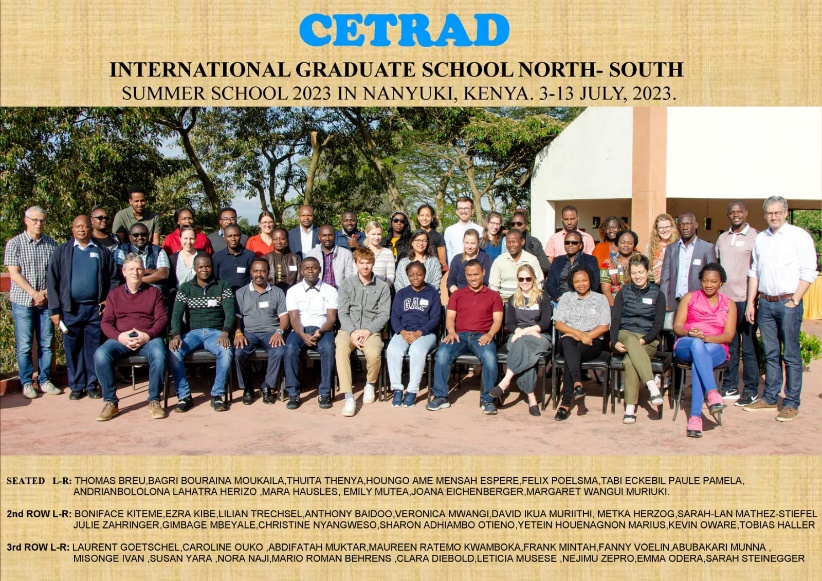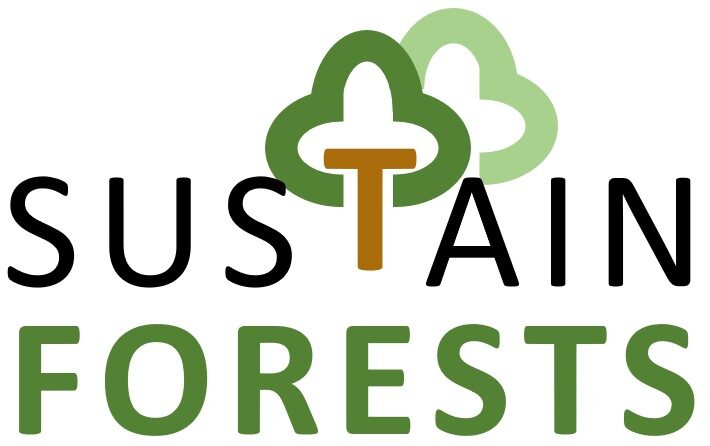Summer School 2023 on Common pool resources in a globalised world, 3 – 13 July 2023 in Kenya
A post-summerschool report by Paule Pamela Tabi Eckebil
INTRODUCTION
The International Graduate School (IGS) North-South for the year 2023 organised in collaboration with the CETRAD (Centre for Training and Integrated Research in ASAL development) a summer school in Kenya – Nanyuki from the 3rd to 13th of July on the thematic “Common pool resources in a globalised world”. The course was organised into different sessions of seminars, group work related to a topic, fieldwork, and group presentations.
CONTENT
The four topics or areas of reflection for this summer school were:
- Land grabbing
- Indigenous local knowledge
- Natural resource governance and conflict management
- Climate change literacy
The main issue about common pool resources in the rural area selected:
Laikipia County and Isiolo County involved diverse local actors.
In the group: Indigenous Local Knowledge (ILK) where I participated, the fieldwork was conducted in Laikipia County, Rumuruti where the common resource is the land with a swamp area that both farmers and elders depend on for their activities. There is a lot of conflict among those actors whereby animals usually destroy the crops of farmers who are not all from the locality but came from other parts of the country to settle in that locality because of the land’s reputation as fertile for farming. The reduction of the swamp area and the scarcity of water as increased the issue among those actors.
In order to understand the issue and suggest solutions, we were asked to design a transdisciplinary approach (based on the topic lectured during seminars) in the field of livelihoods, institutions, and conflicts in Rumuruti; formulate relevant research questions; integrate them into an overall transdisciplinary conceptual framework; specify appropriate methodological packages and reflect about the role of researchers and ethical issues.
In that regard, we were also interested to know how those actors use their indigenous local knowledge to cope with the issues encountered in their everyday lives to sustain their livelihoods.
CONCLUSION
At the end of the 10 days of summer school in Nanyuki, we were able to understand the issues related to common pool resources, to design a transdisciplinary conceptual framework and an appropriate scientific methodological approach to a context where several actors interact on the same land with limited natural resources. The participation in the summer school resulted in obtaining 5 ects for our doctoral training.

